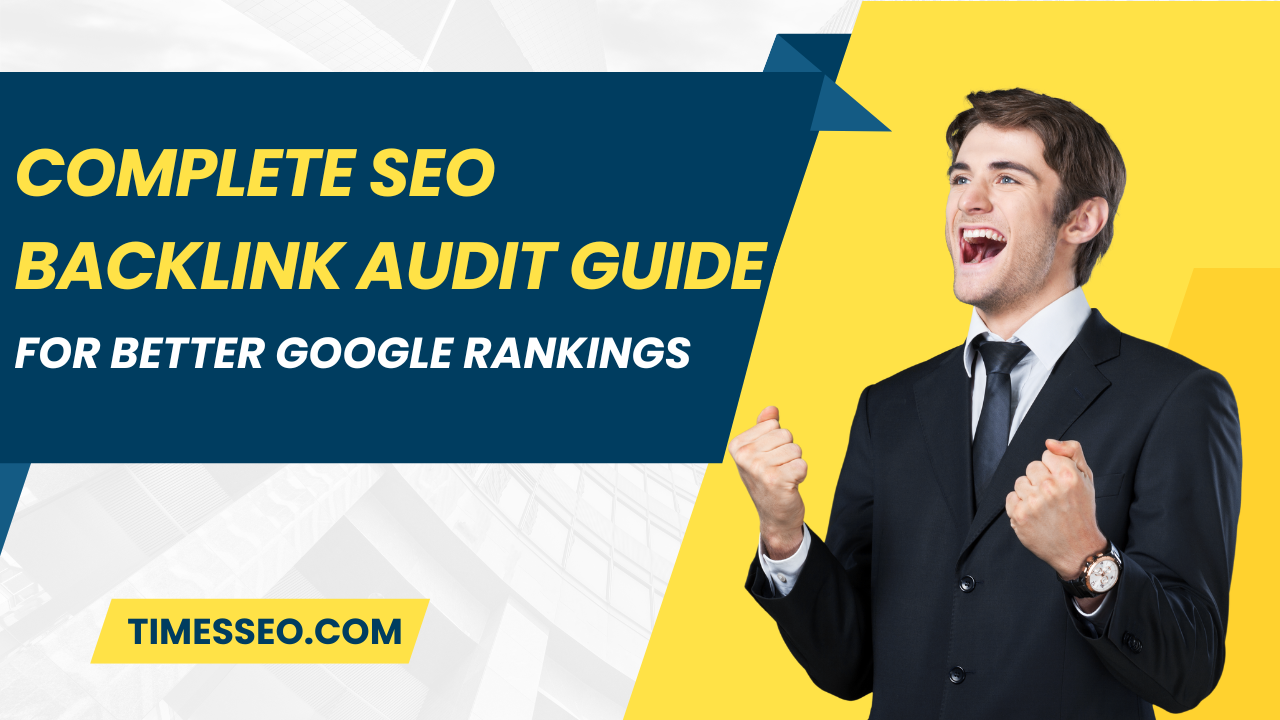
The Ultimate Guide to Competitor Backlink Gap Analysis
Unlock hidden SEO opportunities with competitor backlink gap analysis. This ultimate guide walks you through step-by-step strategies to identify high-quality backlinks your competitors have—but you don’t. Learn how to use top tools, uncover powerful link-building prospects, and create a data-driven strategy to boost your rankings and outperform your competition. Perfect for marketers, bloggers, and SEO professionals.
Table of Contents
Introduction
Let’s face it—ranking on Google is tougher than ever. But if there’s one hack that continues to deliver results for SEO pros, it’s competitor backlink gap analysis. Instead of guessing where to get backlinks, why not just find out who’s already linking to your competitors—but not to you? That’s what this guide is all about. You’ll learn how to uncover hidden backlink opportunities and steal your competitors’ SEO edge—legally, ethically, and smartly.
Understanding the Basics
What Are Backlinks?
Backlinks are hyperlinks from one website to another. Think of them as votes of confidence. Search engines view your website as more reliable and authoritative the more high-quality votes it receives.
How Backlinks Influence SEO
Google sees backlinks as indicators of content quality. The more trusted sites linking to your content, the more likely you are to rank higher in search results.
What is Competitor Backlink Gap Analysis?
The technique of identifying websites that link to your rivals but not to yours is known as competitor backlink gap analysis. It’s a focused, data-driven method to uncover link-building opportunities that are already proven to work in your niche.
Why It Matters for Your SEO Strategy
If your competitors are ranking above you, chances are they’re doing something right—especially in the backlink department. By analyzing their links:
- You discover what kind of content earns backlinks
- You see which sites are open to linking in your niche
- You can approach the same websites with better content or fresh insights
Choosing the Right Competitors to Analyze
Not all competitors are equal.
How to Identify the Right Ones
- Google your primary keywords and analyze the top 10 results.
- Focus on competitors with similar content and audience.
Avoid These Mistakes
- Don’t analyze big brands if you’re a small blog.
- Avoid unrelated websites that just happen to rank for one of your terms.
Essential Tools for Backlink Gap Analysis
- Ahrefs – Link Intersect tool is top-tier
- SEMrush – Excellent backlink comparison reports
- Moz Link Explorer: A helpful tool for determining domain authority
- Ubersuggest – Budget-friendly option
- See who has linked to your website using Google Search Console.
Step-by-Step Process for Competitor Backlink Gap Analysis
Step 1 – Identify Your Main Competitors
Search your most important keywords and make a list of the top ranking websites that consistently outrank you.
Step 2 – Export Their Backlink Profiles
Using Ahrefs or SEMrush:
- Enter their domain
- Export all backlinks or referring domains
- Repeat for 2–4 competitors
Step 3 – Run the Backlink Gap Comparison
Now compare:
- Who links to your competitors
- Who doesn’t link to you
Ahrefs’ Link Intersect tool makes this ridiculously easy.
Step 4 – Filter and Qualify Link Opportunities
Not all links are worth chasing.
- Filter out spammy or irrelevant domains
- Focus on high DA/DR sites
- Prioritize contextual, niche-relevant links
Step 5 – Craft a Link-Building Strategy Based on Gaps
You’ve got the data—now act on it.
- Outreach: Contact site owners with personalized emails
- Content: Create better, fresher, more in-depth articles
- Broken Links: Find dead links and offer your content as a replacement
How to Approach Outreach After Gap Discovery
Outreach is where the magic happens. But generic emails won’t cut it.
Best Practices:
- Be personal and specific
- Mention the exact content they linked to from your competitor
- Offer something of value: updated stats, expert commentary, or improved UX
Advanced Techniques for Power Users
Reverse Engineer Link-Building Campaigns
- Look at publishing timelines and guest post networks
Content Mapping + Link Intersect
- Map your top-performing pages to what competitors have
- Target link opportunities with complementary content
Broken Link Building + Gap Analysis
- Utilize tools to identify broken links in the profiles of competitors.
- Offer your content as a modern, functional replacement
Common Pitfalls to Avoid
- Don’t chase every link. Relevance > volume.
- Avoid spammy forums or link farms.
- Don’t forget to re-check gaps every few months.
Tracking Progress and ROI
Use these metrics:
- Number of new backlinks
- Referring domains growth
- Domain Rating (DR) or Domain Authority (DA)
- Organic traffic increase
Set a baseline and review monthly.
Real-Life Case Studies
SaaS Company
By identifying 300+ missed backlinks, they created targeted content and outreach campaigns that boosted their DR by 30 and tripled organic sign-ups.
Niche Blogger
Used backlink gap analysis + HARO to earn links from 40+ relevant sites, including authority blogs, within 90 days.
Conclusion
Competitor backlink gap analysis is like using your rival’s playbook to beat them at their own game. It removes the guesswork from your link-building strategy, giving you proven data and direct paths to SEO growth. Start small, stay consistent, and your rankings will thank you.
Frequently Asked Questions
Ideally every 3–4 months or whenever launching a new content campaign.
Yes, but paid tools like Ahrefs or SEMrush give deeper, more accurate insights.
Absolutely. It’s competitive intelligence, not stealing.
Quality wins every time. One high-authority link beats dozens of low-quality ones.
Expect measurable improvements in 2–3 months with consistent effort.
Table of Contents
Popular Posts
-
 Affordable Technical SEO Audit for Small Business: A Complete Guide26 Jun 2025 Blog
Affordable Technical SEO Audit for Small Business: A Complete Guide26 Jun 2025 Blog -
 How to Get an Affordable Technical SEO Audit for Small Business27 Jun 2025 Blog
How to Get an Affordable Technical SEO Audit for Small Business27 Jun 2025 Blog -
 The Ultimate Local SEO Audit Checklist for Startups28 Jun 2025 Blog
The Ultimate Local SEO Audit Checklist for Startups28 Jun 2025 Blog -
 Local SEO Audit Checklist for Startups: A Beginner’s Guide28 Jun 2025 Blog
Local SEO Audit Checklist for Startups: A Beginner’s Guide28 Jun 2025 Blog -
 Top On-Page SEO Audit Steps for Service Websites Every Business Should Know29 Jun 2025 Blog
Top On-Page SEO Audit Steps for Service Websites Every Business Should Know29 Jun 2025 Blog -
 Technical SEO for WordPress: The Ultimate Beginner’s Guide01 Jul 2025 Blog
Technical SEO for WordPress: The Ultimate Beginner’s Guide01 Jul 2025 Blog -
 The Impact of On-Page SEO Audit Steps for Service Websites on UX01 Jul 2025 Blog
The Impact of On-Page SEO Audit Steps for Service Websites on UX01 Jul 2025 Blog -
 Technical Mobile SEO Audit Tips for Developers02 Jul 2025 Blog
Technical Mobile SEO Audit Tips for Developers02 Jul 2025 Blog -
 Complete SEO Backlink Audit Guide for Better Google Rankings03 Jul 2025 Blog
Complete SEO Backlink Audit Guide for Better Google Rankings03 Jul 2025 Blog -
 Boost Your Rankings with Technical SEO for WordPress01 Jul 2025 Blog
Boost Your Rankings with Technical SEO for WordPress01 Jul 2025 Blog






